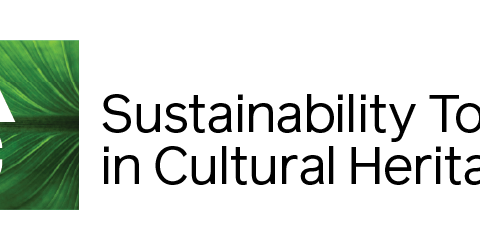Museums watch current economic trends with a combination of fear and fascination. Every major source of museum income has been undermined in recent years, including private philanthropy (which accounted for a median of 36 percent of museum income, prior to the Great Recession). Where is philanthropic support headed in the future? Different folks read the same tea leaves in very different ways. This week, Carl G. Hamm, CFRE, deputy director of Saint Louis Art Museum, former chair of the AAM Development and Membership committee and of the Professional Network Council, encourages us to consider the consequences of reading the data as an optimist, or a pessimist.
Each summer, the philanthropic world eagerly anticipates the annual release of Giving USA as the generally accepted scorecard of charitable giving in America for the previous year. Thanks to the Giving USA Foundation and the Center on Philanthropy at Indiana University, non-profit leaders across the country can share in this benchmarking moment together to ponder trends in giving across the charitable sector and contemplate whether to launch new fund-raising initiatives or pull back, based on others’ experiences. Some even try to use this data to predict how giving will fare in the year ahead.
Until the publication recently became a downloadable document of the digital age, an understanding of the Giving USA data primarily depended on one’s own reading of the published book every year. Now, for better or worse, coverage and interpretation of these annual figures abounds, through stories in the mainstream media and journals covering the non-profit sector, articles, blog posts, emails and webinars hosted by fund-raising consultancies. It’s easier than ever for development professionals, or anyone, really, to glean a superficial sense of how Americans’ giving fared over the past year through sound bites and headlines, bypassing the old-fashioned way of reading it for yourself. Just do a Google search on Giving USA 2012 and you’ll see what I mean.
Reflecting on some of the coverage for last year’s data released in June, I was struck by how differently several venerable sources of journalism could slant what is ostensibly the same information, with one side preaching ‘doom and gloom’ while others chose to focus much more optimistically on Americans’ continued giving for causes they embrace. In fact, consider two of the more prominent headlines “Donations Barely Grew at All Last Year, Giving USA Finds” vs. “Americans Donate More in 2011” based on exactly the same information.
Not criticizing either journalistic position, I do believe it is useful to understand the trends and patterns in how donors across the country are investing in their specific areas of interest through philanthropic giving. But can anyone really predict how generously donors will contribute to museums this year, given specific circumstances in each community and individual organizations’ priorities and requests for support?
As museum leaders, there may be little we can do to change the macroeconomic environment in our country and donors’ confidence in it, but perhaps the way we choose to present data about broader trends in giving to our volunteer leaders and donors might actually inspire confidence in them about our organizations, resulting in more generous support.
Harold J. Seymour once referred to leaders as those who “light the way…create the confidence, (and) sustain the mood.”
Doom and gloom or realistic optimism for the future? Either way, you can find an article or interpretation out there to back up your point of view.
But which type of organization would you rather support?
One of my favorite sources for deep thoughts on the future of philanthropy is Lucy Bernholz’s blog Philanthropy 2173: The Future of Good (you can follow Lucy @P2173 on Twitter). I also look forward to the monthly Museum Results e-newsletter, dedicated to museum-specific philanthropic news, which is edited by CFM Council member Jim Hackney. You can find the latest issue and back issues on this page—the July issue highlights some results from Giving USA. For a deeper dive into that report’s data, my colleague Phil Katz recommends the transcript & video of a program he attended at the Hudson Institute in D.C. on June 29, 2012: “Giving USA 2012: Who Gave, How Much, and to Whom in 2011?“









Wonderful thoughts on this matter! So great to forecasting giving to museums in 2012 through the giving USA data and appreciate as you have.
In home care